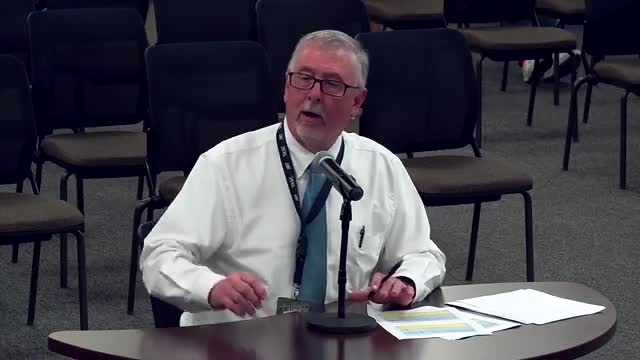Schools Struggle to Fill Critical Math Coaching Positions
October 02, 2024 | Kershaw 01, School Districts, South Carolina
This article was created by AI summarizing key points discussed. AI makes mistakes, so for full details and context, please refer to the video of the full meeting. Please report any errors so we can fix them. Report an error »

In a recent government meeting, education officials discussed the ongoing challenges of staffing middle school math coaching positions across four schools. The current arrangement, where a single coach is shared among the schools, has proven ineffective due to the limited time spent at each location and the difficulty in finding qualified candidates who can lead adult educators.
The conversation highlighted the struggle to balance the need for effective math instruction with the realities of teacher retention and recruitment. Officials noted that while internal candidates are often preferred for their familiarity with school culture, pulling successful teachers from classrooms can create significant challenges for principals, especially during the school year.
Participants acknowledged that the ideal candidate for a math coach must not only excel in teaching but also possess strong leadership skills to guide other educators. The discussion revealed a consensus that the current pool of candidates is insufficient, with many potential hires reluctant to leave their teaching positions, particularly when they are performing well.
The meeting also touched on the financial implications of coaching roles. Suggestions were made to consider increasing the pay for math coaches to attract higher-quality candidates. However, concerns were raised about how this might affect the pay structure for other positions, such as assistant principals, and the need to maintain balance within the salary framework.
Additionally, the group discussed the importance of long-term planning in staffing decisions, emphasizing the need to cultivate a sustainable teaching culture rather than merely addressing immediate vacancies. The officials expressed a desire to incentivize coaching roles to encourage talented teachers to transition into these positions, ultimately aiming to enhance the quality of math education in the district.
As the meeting concluded, there was a call for further analysis of compensation structures in comparison to other districts, suggesting that a comprehensive salary study could provide valuable insights into attracting and retaining effective educators.
The conversation highlighted the struggle to balance the need for effective math instruction with the realities of teacher retention and recruitment. Officials noted that while internal candidates are often preferred for their familiarity with school culture, pulling successful teachers from classrooms can create significant challenges for principals, especially during the school year.
Participants acknowledged that the ideal candidate for a math coach must not only excel in teaching but also possess strong leadership skills to guide other educators. The discussion revealed a consensus that the current pool of candidates is insufficient, with many potential hires reluctant to leave their teaching positions, particularly when they are performing well.
The meeting also touched on the financial implications of coaching roles. Suggestions were made to consider increasing the pay for math coaches to attract higher-quality candidates. However, concerns were raised about how this might affect the pay structure for other positions, such as assistant principals, and the need to maintain balance within the salary framework.
Additionally, the group discussed the importance of long-term planning in staffing decisions, emphasizing the need to cultivate a sustainable teaching culture rather than merely addressing immediate vacancies. The officials expressed a desire to incentivize coaching roles to encourage talented teachers to transition into these positions, ultimately aiming to enhance the quality of math education in the district.
As the meeting concluded, there was a call for further analysis of compensation structures in comparison to other districts, suggesting that a comprehensive salary study could provide valuable insights into attracting and retaining effective educators.
View full meeting
This article is based on a recent meeting—watch the full video and explore the complete transcript for deeper insights into the discussion.
View full meeting